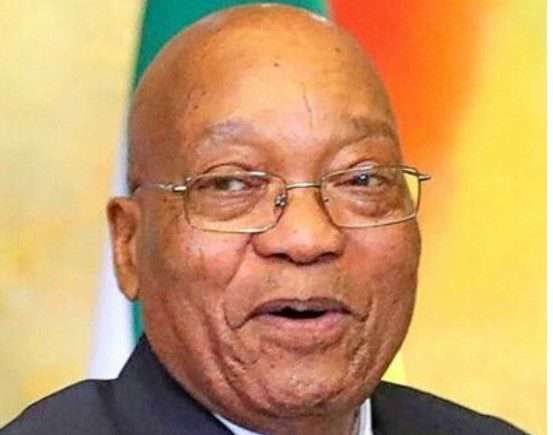Advocate Dali Mpofu has argued that state prosecutor advocate Billy Downer may have not personally leaked former president Jacob Zuma’s medical records to the media, but he failed to report the perpetrator.
On Thursday, the former statesman returned to the Pietermaritzburg High Court for another bite in his sedulous quest to remove Downer as a senior prosecutor in his arms deal trial.
Downer is accused of bias and concealing unethical conduct, where Zuma’s medical records were allegedly leaked to Media24 journalist Karyn Maughn.
The court has heard that the document was not seeped by Downer but by Andrew Breitenbach, another advocate on the team.
Exchange of documents, information
During the proceedings on Thursday, Mpofu read out conversations which revealed the exchange of documents and information.
He argued that the key offence lies in the unauthorised disclosure of information, regardless of whether it was published or kept private.
He emphasised that Downer and Maughn falsely claimed that the document was filed in court while Breitenbach had instructed the journalist not to publish it until it was filed in court, raising concerns about their knowledge of unlawfulness.
“We are told about the publication of the document, but section 41[6] of the National Prosecuting Authority [NPA] has nothing to do with the publication, it’s disclosure,” Mpofu told the court.
“Whether Miss Maughn published that thing or put it under the mattress or burnt it in the oven or whatever, is irrelevant. The crime is in the disclosure of the information.
“The information was disclosed to the knowledge of the prosecution without it being filed in court, because if it wasn’t so, they would not have done the deal. They wouldn’t have said don’t publish this until we file it.
“That is what is called knowledge of unlawfulness in criminal law, you know that what you are doing is wrong. [They] lied under oath, saying the document was filed in court. That is a lie.”
Unethical behaviour not reported
Mpofu explained how Downer is implicated, pointing out that he failed to report the unethical behaviour of his colleague, who shared the document with Maughn and later informed him of his actions.
According to Mpofu, Downer said Breitenbach told him after he allegedly leaked the records. Mpofu said in criminal law, this is a confession.
“Everybody pretends not to understand that, but it is that simple. Upon being told, Mr Downer did nothing. In criminal law 101, you can commit a crime by omission or commission.
“We are not saying that Downer asked Breitenbach to give the document to Maughn, but we are saying that he sanctioned it by his inaction as a lead prosecutor by doing nothing in the face of clear illegality, by breaching section 41[6] of the NPA Act in front of him.”
Prosecutor broke ethics code
Mpofu contended that Downer’s failure to act and his violation of section 41(6) of the act were sufficient grounds for his recusal.
He stressed the importance of prosecutors adhering to ethical standards.
The crux of Mpofu’s argument was that Downer’s inaction amounted to a breach of ethics.
He accused the prosecution of fuelling media frenzy and failing to remain impartial and detached in the case, which he believes should disqualify Downer as a prosecutor.
“The reason Mr Zuma’s medical information was leaked was not just for the sake of it, it was to fuel the media frenzy to say that he is faking his illness, Stalingrad, Stalingrad, and all that.”
Downer urged to follow suit
In January 2023, judge Piet Koen recused himself from the arms deal trial stating that it is in the interest of justice.
Mpofu contended that if Downer had recused himself when the allegations of bias were first raised, the case would have progressed more smoothly.
He stressed that ethical and professional considerations should take precedence, emphasising that a prosecutor should not become an accused in the same case before the same judge.
“One cannot be a prosecutor and later an accused in the same matter, in front of the same judge,” Mpofu said.



